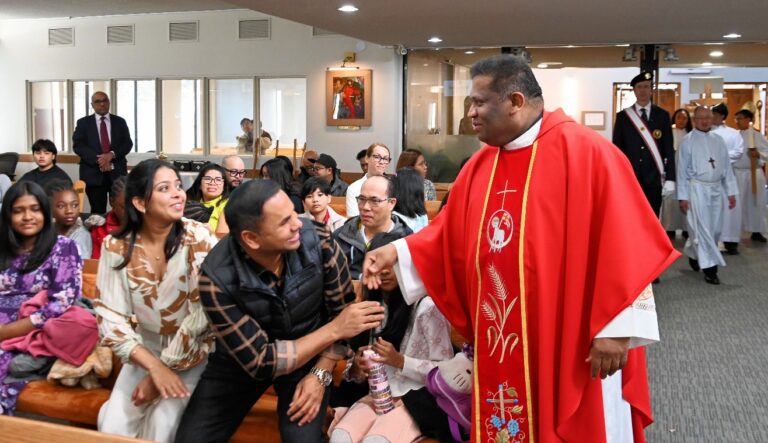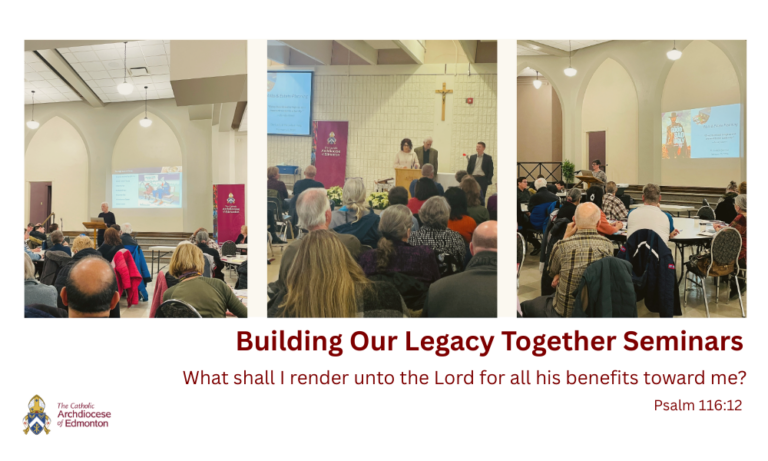A humble soul does not trust itself, but places all its confidence in God. God defends the humble soul and lets Himself into its secrets, and the soul abides in unsurpassable happiness which no one can comprehend.
~Diary of St. Faustina[1]
The Divine Mercy devotion, which originated in the 1930s, is based on the visions of St. Faustina Kowalska, a humble Polish nun.[2] “On May 5, 2000, five days after the canonization of St. Faustina, the Vatican decreed that the Second Sunday of Easter would henceforth be known as Divine Mercy Sunday.”[3] Since then, the devotion has ignited a passion in countless individuals to fully embrace God’s message of mercy.
In her visions, St. Faustina had conversations with Jesus that were filled with profound insights into the significance of embracing God’s mercy and showing compassion to others. Jesus revealed to St. Faustina the vast depth of His mercy and encouraged her to trust in Him completely, regardless of her shortcomings or failings. In one of her journal entries, St. Faustina recorded that Jesus told her about the importance of trust, saying, “The graces of My mercy are drawn by means of one vessel only, and that is – trust. The more a soul trusts, the more it will receive.”[4] As you reflect on the message of Divine Mercy that Jesus imparted to us through St. Faustina, consider how you can cultivate this mercy in your marriage relationship, thereby deepening the trust you share with your spouse.

Dr. John Gottman, a renowned psychologist and researcher in the field of marriage and relationships, emphasizes the significance of trust as one of the fundamental pillars of strong and thriving relationships.[5] Gottman\’s research examines how trust can be damaged by betrayal, such as lies, infidelity, or breaches of confidentiality.[6]
However, Gottman also emphasizes the importance of repair attempts in restoring trust after a betrayal occurs. Genuine apologies, accountability, and efforts to rebuild trust can facilitate healing and reconciliation within the relationship.[7] Just as God’s mercy can be healing for us, the mercy you extend to your spouse can be healing for your relationship.
As we embrace God’s mercy for us, particularly through the sacrament of confession, we come to trust that God loves us, despite our faults and failings. Similarly, by extending mercy to your spouse, you can create a safe space for your spouse to be themselves, which can allow the opportunity for hurts and mistakes to be repaired and healed. This healing can decrease the distance between you and your spouse that was caused by the rupture, allowing for connection and trust to increase.
Embracing God’s unconditional love sets a profound foundation for marital trust. Just as Divine Mercy teaches us that God’s love knows no bounds, allowing this love to flow through your marriage can foster a sense of security and acceptance between you and your spouse. God’s capacity for love and mercy is infinite. Due to our human nature, we are limited.
However, through understanding and internalizing the concept of unconditional love emphasized by Jesus through His message of Divine Mercy, you can grow in your ability to convey unconditional love and acceptance to your spouse. This belief in unwavering love can create a safe space for vulnerability, honesty, and mutual respect in a marital relationship. Divine Mercy Sunday provides the perfect opportunity to reflect on God\’s “bottomless sea of mercy.”[8]*
There are many wonderful ways to celebrate Divine Mercy Sunday with your family. You can pray the Divine Mercy Chaplet together. If you are not familiar with the Chaplet, The Divine Mercy website has many great resources, including a step-by-step guide, a pray-along video, or an audio you can use to assist you. Another way to express your devotion to the Divine Mercy is to place an image of the Divine Mercy in your home. St. Faustina was asked by Jesus to create an image of Him, accompanied by the message, “Jesus, I trust in you.” The image contains rays of red and blue, which represent the blood and water that gushed forth from Jesus’ side during the crucifixion and Jesus told St. Faustina that they came from the depths of his mercy.[9]

You can read more about the history and significance of this image on the Divine Mercy website. You and your spouse can also take some time to discuss and reflect on the message, focusing on the trust you have and ways to build trust in your relationship with God and each other. You could speak to each other about what areas in your relationship you struggle with and entrust these areas to God as you explore ways to practically address them.
The website divinemercy.org offers many more ways to celebrate. If you want to include some fun in your celebration of God’s gift of mercy, consider making Divine Mercy sundaes. The Catholic Icing website provides instructions on how to create these fun desserts and also has lots of other activities that you can try with the children in your life.
As you celebrate Divine Mercy Sunday, may you be reminded of the great love and mercy God has for you and your spouse, and that it is also possible to experience mercy within your marriage to increase the trust you and your spouse have in each other. May you be able to genuinely pray “Jesus, I trust in you” and also be able to turn to your spouse and say “[Insert their name], I trust in you as well”.
*Please note, if you’re in an abusive relationship, we encourage you to prioritize your safety and seek the necessary help for yourself and your children. If you need information on resources in Edmonton and across the province, please call the Family Violence Info Line at 310-1818 (toll free).
– Melissa Guzik and Jean MacKenzie are registered psychologists who work in private practice in Edmonton. They are co-authors of the Catholic marriage enrichment book and workbook To Know, Love and Serve: A Path to Marital Fulfilment. For more information, see: www.knowloveserve.info.




